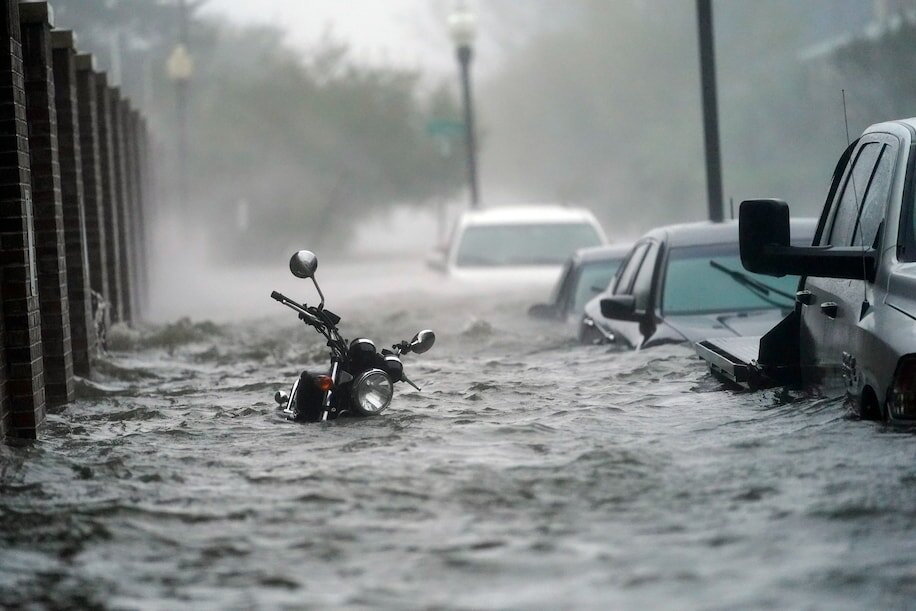Wash Post — The price of living near the shore is already high. It’s about to go through the roof.
Oct 1, 2021
By Darryl Fears and Lori Rozsa — As FEMA prepares to remove subsidies from its flood insurance, a new assessment says 8 million homeowners in landlocked states are at risk of serious flooding because of climate change
PALM BEACH, Fla. — When Brian and Susan Gary settled down on this exclusive island spit a decade ago, climate scientists were already sounding an alarm: Global temperatures were warming, sea levels were rising and damaging floodwaters were creeping ever closer to homes.
The Garys had joined 8 million Americans who moved to counties along the U.S. coast between 2000 and 2017, lured by the sun, the sea and heavily subsidized government flood insurance that made the cost of protecting their homes much less expensive, despite the risk of living in a flood zone near a vast body of water.
But a reckoning is coming.
On Friday, the Federal Emergency Management Agency will incorporate climate risk into the cost of flood insurance for the first time, dramatically increasing the price for some new home buyers. Next April, most current policyholders will see their premiums go up and continue to rise by 18 percent per year for the next 20 years.
…

